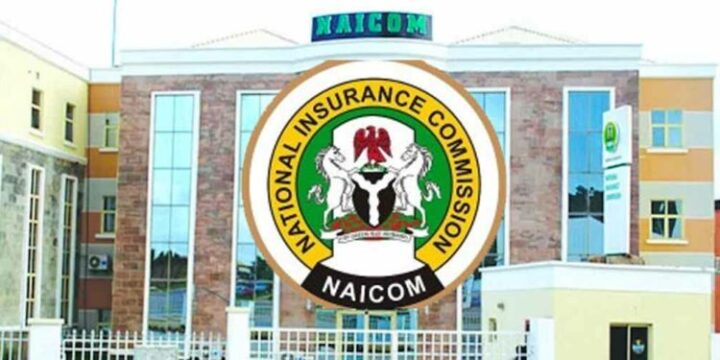The National Insurance Commission (NAICOM) has issued a stern warning to insurance and reinsurance firms across Nigeria, urging them to meet the recapitalisation requirements or risk facing liquidation. The move underscores the regulator’s resolve to strengthen the financial stability of the insurance sector, improve risk absorption capacity, and enhance consumer confidence in an industry that has long struggled with low penetration and undercapitalisation.
Speaking at a recent industry event in Abuja, NAICOM officials stressed that the recapitalisation exercise is not negotiable and must be adhered to if Nigeria’s insurance industry is to play its role in economic development. The Commission noted that while a few operators have made progress in meeting the requirements, several others continue to lag behind, raising concerns about their ability to meet policyholder obligations in the event of large claims.

The recapitalisation directive, which mandates insurers to raise their minimum capital base depending on their line of business, was introduced to align the industry with global best practices. Life insurance firms, general insurers, composite firms, and reinsurance companies were all given specific capital thresholds that must be met within the stipulated timeline. NAICOM has made it clear that firms unable to comply risk having their licenses revoked and their assets liquidated in order to protect policyholders.
According to analysts, the recapitalisation exercise is critical given the increasing risks in Nigeria’s economy and the growing demand for robust insurance services. With inflation, insecurity, and climate-related disasters placing greater strain on businesses and households, the need for strong, well-capitalised insurers has never been more urgent. Industry watchers argue that only firms with adequate financial strength can provide reliable cover, handle large claims, and attract foreign investment into the sector.
NAICOM has also emphasised that the recapitalisation drive is intended to foster consolidation in the industry. Smaller operators struggling to meet the capital requirements have been encouraged to consider mergers and acquisitions as a pathway to compliance. By promoting stronger and fewer players, NAICOM hopes to create an industry that can compete not just locally but across Africa.
The Commission further warned that there will be no compromise in enforcing the rules. Insurers that fail to meet the recapitalisation target by the deadline will have their licenses withdrawn, with their businesses either liquidated or transferred to stronger operators. This tough stance, according to NAICOM, is meant to send a clear signal that the era of weak and poorly capitalised insurance firms is over.
Industry stakeholders have expressed mixed reactions to the ultimatum. Some insurers argue that the recapitalisation threshold is too high, especially given the current economic climate marked by high inflation, volatile exchange rates, and limited access to long-term funding. They contend that the timelines are tight and may force some otherwise viable firms out of business.
Others, however, support NAICOM’s decision, noting that the recapitalisation drive is necessary to weed out weak operators and protect policyholders from the risk of unpaid claims. Consumer advocates argue that Nigerians deserve an insurance industry that is capable of fulfilling its obligations promptly, rather than leaving policyholders stranded during emergencies.
The Nigerian insurance industry has long been described as underperforming relative to its potential. Despite the size of Nigeria’s economy and its large population, insurance penetration remains below 1% of GDP—one of the lowest in Africa. Experts attribute this to weak trust in insurers, inadequate capitalisation, poor claims settlement history, and limited awareness among citizens about the benefits of insurance.
By enforcing recapitalisation, NAICOM hopes to change this narrative. Stronger firms, the Commission argues, will not only inspire public trust but will also be able to offer innovative products tailored to Nigeria’s evolving risks, including in agriculture, health, and infrastructure. Additionally, a better-capitalised industry is expected to attract more foreign direct investment, particularly as global insurers and reinsurers look for growth opportunities in emerging markets.
Beyond strengthening balance sheets, recapitalisation is also expected to help insurers leverage technology and data analytics to expand their reach. Digital platforms have been identified as a major driver of insurance adoption, particularly among Nigeria’s youthful population and underserved rural communities. With higher capital, firms can invest in digital solutions that make policies easier to purchase, manage, and claim.
Nevertheless, NAICOM acknowledged that the path to recapitalisation will not be easy for all operators. The Commission has pledged to provide regulatory support and guidance, including fast-tracking approval processes for mergers and ensuring transparency in compliance monitoring. However, it reiterated that under no circumstance will non-compliant firms be allowed to continue operating after the deadline.
As the deadline approaches, attention has now shifted to how many insurers will successfully recapitalise and how many may fall by the wayside. Observers note that the outcome will reshape Nigeria’s insurance landscape, with fewer but stronger companies expected to dominate the market.
For policyholders, the recapitalisation exercise could mean improved claims settlement, better customer service, and more innovative insurance products. For the broader economy, it could provide a safety net for businesses and individuals while enhancing Nigeria’s attractiveness to investors who rely on a strong insurance sector to manage risks.
In the words of one industry expert, “Recapitalisation may seem painful for some operators now, but in the long run, it is the only way to build an insurance industry that can truly support Nigeria’s economic aspirations.”
Support InfoStride News' Credible Journalism: Only credible journalism can guarantee a fair, accountable and transparent society, including democracy and government. It involves a lot of efforts and money. We need your support. Click here to Donate
